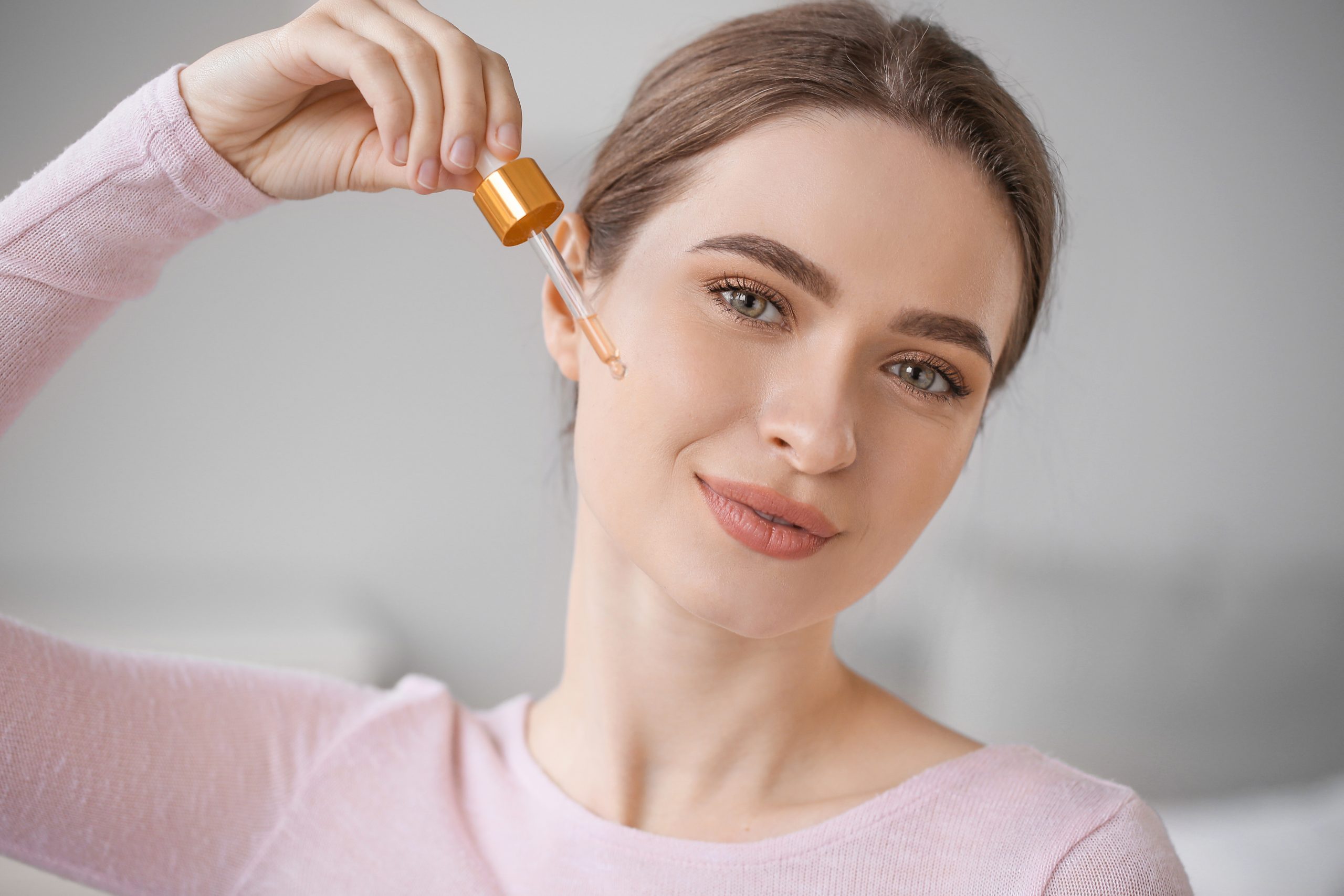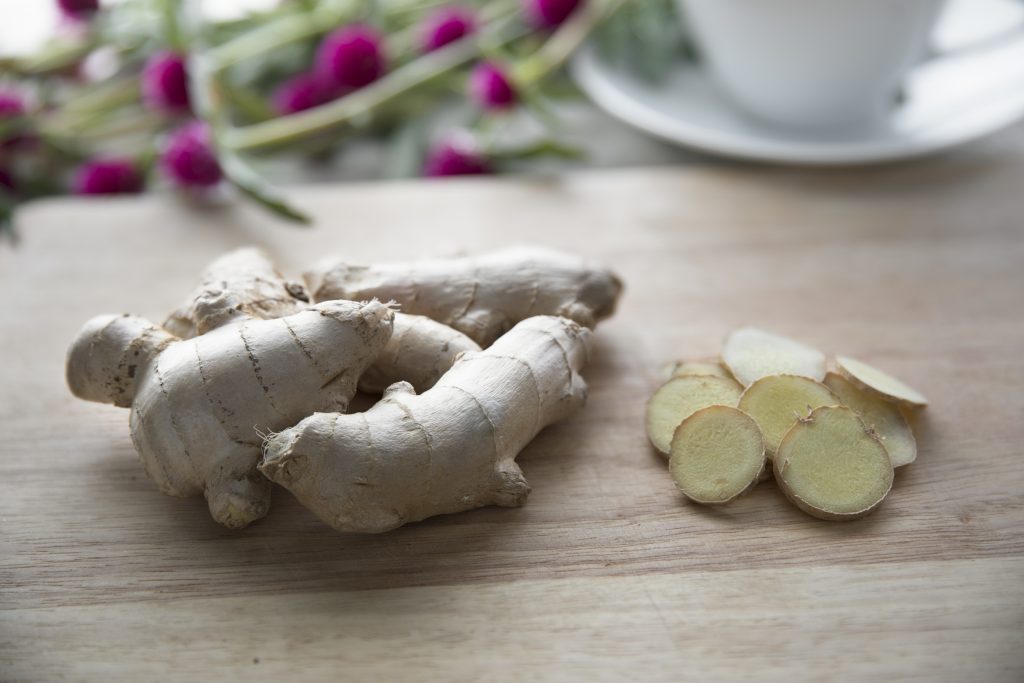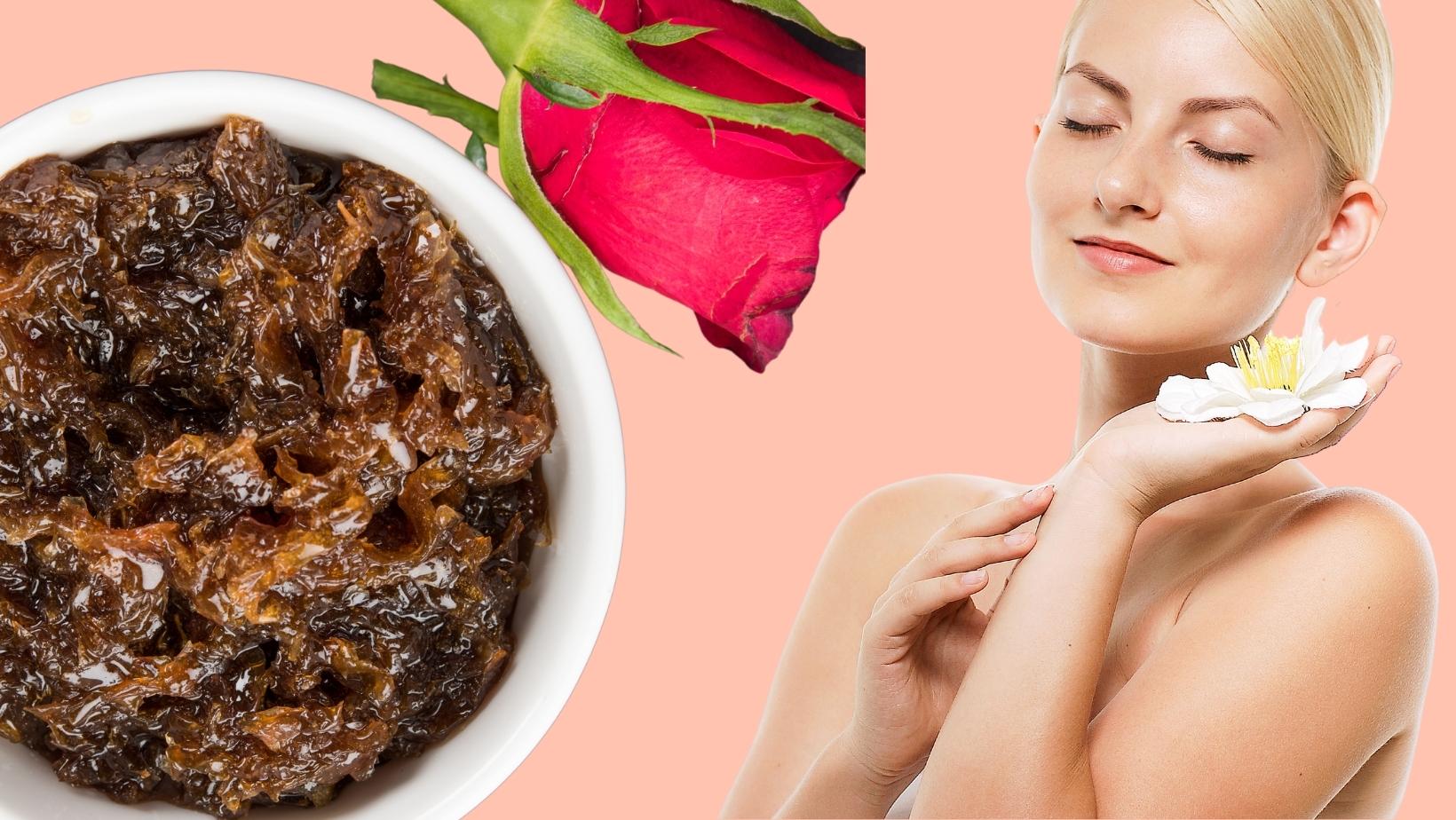
Coconut oil, often hailed as a wonder ingredient, has garnered significant attention in the world of skincare for its potential benefits and versatility. From deep hydration to antioxidant properties, this tropical elixir offers a plethora of advantages for your skin. In this comprehensive guide, we will delve into the benefits, debunk common myths, explore best practices, and answer your frequently asked questions about using coconut oil for skincare.
Coconut Oil – Benefits for Your Skin
1. Deep Hydration and Skin Nourishment Coconut oil’s emollient nature allows it to seep into the skin, providing intense hydration and promoting a supple, smooth complexion. Its fatty acids, such as lauric acid, help reinforce the skin’s natural barrier, preventing moisture loss and locking in hydration.
2. The Antioxidant Powerhouse Rich in antioxidants like Vitamin E and polyphenols, coconut oil fights free radicals, the pesky molecules that contribute to premature aging. These antioxidants work to neutralize the harmful effects of environmental stressors, leaving your skin looking youthful and radiant.
3. Makeup Remover Extraordinaire Bid farewell to stubborn makeup with coconut oil’s gentle yet effective cleansing ability. Its ability to dissolve makeup products, even waterproof mascara, makes it an ideal choice for those seeking an all-natural makeup remover.
4. Mild Exfoliation for Smooth Skin Gently massaging coconut oil onto your skin can aid in the removal of dead skin cells, unveiling a fresh, rejuvenated layer. This mild exfoliation can contribute to a more even skin tone and a healthy glow.
5. Potential Antimicrobial Properties Coconut oil’s lauric acid showcases antimicrobial properties that may assist in combatting certain skin issues. While it’s not a replacement for medical treatments, incorporating coconut oil into your skincare routine may offer supplementary benefits.
Unraveling Myths – Separating Fact from Fiction
1. Clogging Pores: Truth or Misconception? While coconut oil has a comedogenic rating, indicating its potential to clog pores, this aspect varies from person to person. If you have acne-prone skin, consider performing a patch test and using coconut oil in moderation to gauge your skin’s response.
2. Dispelling Skin Darkening Claims Contrary to popular belief, there is no scientific evidence supporting the notion that coconut oil darkens the skin. Whether you have fair or darker skin, coconut oil can be safely utilized without altering your skin tone.
3. Coconut Oil for Oily Skin – A Surprising Ally Balancing oil production is vital for those with oily skin. Surprisingly, coconut oil’s lightweight texture can help regulate sebum production, making it a valuable addition to your skincare routine.
4. Melanin Reduction Clarified Though coconut oil does not directly reduce melanin production, its nourishing properties can support skin health, contributing to a more even skin tone.
Coconut Oil Skincare – Best Practices
1. Patch Test Prowess Before using coconut oil on your face, perform a patch test on a small area to check for potential sensitivity or allergies.
2. Opt for Quality Choose organic, unrefined, and cold-pressed coconut oil. These variants retain more nutrients, offering enhanced skincare benefits.
3. Moderation Matters A little goes a long way with coconut oil. Apply a thin layer to experience its moisturizing magic without feeling greasy.
4. Tailor to Your Skin Type Customize your coconut oil usage based on your skin type. For oily skin, consider blending it with other lightweight oils or applying it as a targeted treatment.
5. Overnight Nourishment Maximize coconut oil’s potential by incorporating it into your nighttime skincare routine. Let it work its magic as you sleep, waking up to a revitalized complexion.
Disadvantages of Coconut Oil on Skin
1. Sensitivity and Allergic Reactions While rare, some individuals may experience sensitivity or allergies to coconut oil. Discontinue use immediately if any adverse effects occur, and consult a dermatologist if needed.
2. Embrace Individuality Every individual’s skin is unique, and what works wonders for one person may not suit another. Listen to your skin and adapt your routine accordingly.
FAQs – Answering Your Coconut Oil Skincare Queries
1. Is it OK to use coconut oil on your face?
Yes, it is generally safe to use coconut oil on your face. Coconut oil has moisturizing and nourishing properties that can benefit the skin. However, it’s important to consider your skin type and potential sensitivities. Coconut oil is rich in fatty acids and can be comedogenic, meaning it has the potential to clog pores and cause breakouts in some individuals. Those with acne-prone or highly sensitive skin may want to perform a patch test and consider alternative options.
2. Is it okay to use coconut oil on skin every day?
Using coconut oil on the skin every day can be suitable for some individuals, especially those with dry or normal skin types. However, as mentioned earlier, those with oily or acne-prone skin should exercise caution. It’s always advisable to listen to your skin and observe how it responds. If any adverse reactions occur, it’s best to discontinue use or seek guidance from a dermatologist.
3. How to use coconut oil for skincare?
To use coconut oil for skincare, start with clean, dry skin. Take a small amount of coconut oil and warm it between your palms. Gently massage the oil onto your face using upward circular motions. Allow it to absorb into the skin. Coconut oil can be used as a moisturizer, makeup remover, or as a base for DIY skincare recipes. Remember to use it sparingly and adjust the quantity based on your skin’s needs.
4. Does coconut oil make skin glow?
Coconut oil’s hydrating properties can contribute to a healthy, radiant glow on the skin. Its emollient nature helps to moisturize and soften the skin’s texture, providing a natural sheen. However, it’s important to note that individual results may vary, and factors such as skin type and overall skincare routine can influence the level of glow experienced.
5. Can I apply coconut oil on the face overnight?
Applying coconut oil on the face overnight can be beneficial for some individuals. The extended duration allows the oil to deeply penetrate the skin and provide intense hydration. However, those with oily or acne-prone skin should exercise caution, as leaving coconut oil on the face overnight may lead to pore clogging and breakouts. It’s best to start with small amounts and observe how your skin responds.
6. Can coconut oil remove dark circles?
Coconut oil has moisturizing properties that can help nourish the delicate skin under the eyes. While it may not directly remove dark circles, regular use of coconut oil as part of an overall skincare routine can help improve skin texture and appearance. To specifically target dark circles, it’s advisable to explore other remedies, such as getting adequate sleep, using cold compresses, or incorporating specific eye creams or serums.
7. Is 100% coconut oil good for the skin?
Pure, 100% coconut oil can be good for the skin, as it contains natural fatty acids that can help nourish and moisturize. However, it’s important to consider your skin type and potential sensitivities. Some individuals may find that 100% coconut oil is too heavy or comedogenic for their skin, leading to clogged pores and breakouts. It’s always recommended to perform a patch test before applying it to a larger area of the skin.
8. What are the advantages and disadvantages of applying coconut oil on the face?
Advantages:
- Deeply moisturizes and nourishes the skin.
- Provides a natural glow and radiance.
- Can help improve skin texture and elasticity.
- Acts as an effective makeup remover.
- May have potential antimicrobial properties.
Disadvantages:
- May clog pores and cause breakouts in some individuals.
- Can be heavy on the skin, especially for oily or acne-prone skin types.
- May not be suitable for everyone due to individual skin sensitivities.
- Does not offer sun protection, so additional sunscreen is necessary.
- Can stain clothing or bedding if not fully absorbed.
9. Which coconut oil is best for the skin?
When selecting coconut oil for skincare, opt for organic, unrefined, and cold-pressed varieties. These types of coconut oil undergo minimal processing and retain more of their natural beneficial compounds. Look for labels that indicate the oil is 100% pure and free from additives or artificial substances.
10. Does coconut oil tan the skin?
Coconut oil, when used as a tanning oil, can attract sunlight due to its oily nature. However, it’s important to note that coconut oil does not provide sufficient sun protection. It has a low sun protection factor (SPF) and may not shield the skin adequately from harmful UV rays. It’s crucial to use a dedicated sunscreen with broad-spectrum protection to safeguard your skin from sun damage.
11. Can coconut oil remove pigmentation?
While coconut oil is believed to have potential skin lightening properties, there is limited scientific evidence to support its effectiveness in removing pigmentation or reducing hyperpigmentation. If pigmentation concerns persist, it’s advisable to consult with a dermatologist for appropriate treatment options.
12. Does coconut oil and turmeric whiten the skin?
Coconut oil and turmeric are often used in traditional skincare remedies for their potential skin-brightening properties. Turmeric contains a compound called curcumin, which may have anti-inflammatory and antioxidant effects. However, their specific impact on skin whitening is not well-established scientifically. It’s important to approach such remedies with caution and consider individual skin sensitivities.
13. What are the side effects of coconut oil on the face?
While coconut oil is generally safe for most individuals, some people may experience adverse reactions. These can include clogged pores, breakouts, or allergic reactions. It’s crucial to perform a patch test before applying coconut oil to the face and discontinue use if any irritation or discomfort occurs. If you have existing skin conditions or concerns, it’s best to consult with a dermatologist before incorporating coconut oil into your skincare routine.
14. Is coconut oil good for oily skin?
Coconut oil may not be ideal for oily skin due to its comedogenic nature, which means it has the potential to clog pores. However, some individuals with oily skin may find that using coconut oil sparingly or in combination with other non-comedogenic ingredients works well for them. It’s best to experiment with a small amount and monitor your skin’s response.
15. Can I apply coconut oil on lips?
Yes, coconut oil can be used to moisturize and nourish the lips. Its hydrating properties can help prevent chapping and keep the lips soft and supple. Apply a small amount of coconut oil to the lips and gently massage it in. For added benefits, consider mixing coconut oil with beeswax or shea butter to create a homemade lip balm.
16. Can coconut oil make lips pink?
Coconut oil alone does not have the ability to change the natural color of your lips. However, by keeping the lips moisturized and protected from dryness and environmental factors, coconut oil can contribute to maintaining their natural healthy appearance.
17. Does coconut oil reduce melanin?
There is no scientific evidence to suggest that coconut oil can reduce melanin production in the skin. Melanin production is a complex process regulated by various factors, including genetics and exposure to sunlight. If you have specific concerns regarding melanin production or uneven skin tone, it’s advisable to consult with a dermatologist for appropriate treatment options.
18. Which coconut oil is 100% pure?
Look for organic, unrefined, and cold-pressed coconut oil to ensure it is as close to its natural state as possible. Check the label to ensure it is 100% pure coconut oil without any additives, fragrances, or artificial substances.
19. Does coconut oil make the skin thicker?
Coconut oil’s moisturizing properties can help improve skin hydration and contribute to a plump and supple appearance. However, it does not directly increase the thickness of the skin. Factors such as collagen production, skin health, and overall lifestyle habits play a more significant role in skin thickness.
20. What happens if you use coconut oil every day?
Using coconut oil every day can provide the skin with continuous hydration and nourishment. It may help improve overall skin texture, maintain moisture levels, and promote a healthy-looking complexion. However, individual responses may vary, and it’s important to be mindful of potential sensitivities, especially for those with acne-prone or oily skin.
21. What is negative about coconut oil?
While coconut oil has its benefits, it’s essential to be aware of potential drawbacks. The high saturated fat content of coconut oil may not be suitable for individuals with specific health conditions, such as cardiovascular disease or high cholesterol. Additionally, its comedogenic nature can lead to clogged pores and breakouts in some individuals. It’s important to use coconut oil in moderation and consider alternative options if it doesn’t suit your skin type or preferences.
22. Why not to use coconut oil on the skin?
Coconut oil may not be suitable for everyone due to its comedogenic nature. Those with oily or acne-prone skin may experience clogged pores and breakouts when using coconut oil. Additionally, individuals with specific skin sensitivities or allergies to coconut oil should avoid its use. It’s crucial to listen to your skin and choose skincare products that work best for your unique needs.
23. Is coconut oil good for acne?
The use of coconut oil for acne-prone skin is a subject of debate. While some individuals find it beneficial for their skin, others experience increased breakouts and clogged pores. Coconut oil has the potential to exacerbate acne due to its comedogenic properties. It’s advisable to proceed with caution and consult with a dermatologist to determine the best skincare approach for acne management.
24. Can coconut oil remove blackheads?
Coconut oil alone may not be effective in removing blackheads. Blackheads are caused by clogged pores and oxidized sebum, and they typically require proper cleansing, exfoliation, and targeted skincare treatments. It’s advisable to consult with a dermatologist or esthetician for guidance on effective blackhead removal techniques.
25. Does coconut oil increase hair growth on the face?
There is no scientific evidence to support the claim that coconut oil promotes hair growth on the face. Hair growth is primarily influenced by genetics, hormones, and individual factors. It’s important to approach hair growth treatments or concerns with evidence-based solutions and consult with a healthcare professional if necessary.
26. What are the benefits of using coconut oil on the face?
The benefits of using coconut oil on the face can include:
- Deep moisturization and hydration.
- Potential improvement in skin texture and elasticity.
- Makeup removal capabilities.
- Nourishment for dry or normal skin types.
- Natural aroma and luxurious feel.
- Potential antimicrobial properties.
27. Can coconut oil regrow hair?
Coconut oil has been popularly used as a hair treatment to nourish and condition the hair. While it can help improve the overall health and appearance of the hair, there is no scientific evidence to suggest that coconut oil alone can regrow hair. Hair growth is influenced by various factors, and targeted treatments may be required for specific hair regrowth concerns.
28. What happens if we apply coconut oil under eyes overnight?
Applying coconut oil under the eyes overnight can provide hydration and nourishment to the delicate skin in that area. It may help minimize the appearance of fine lines and wrinkles, and reduce puffiness. However, it’s essential to use coconut oil sparingly and avoid getting it into the eyes. Individual experiences may vary, so it’s recommended to patch test and observe your skin’s response before applying it overnight.
29. Is coconut oil good for under eyes?
Coconut oil can be beneficial for the under-eye area as it provides hydration and moisturization. Its emollient properties can help smooth the skin and reduce dryness. However, it’s important to be cautious and use coconut oil sparingly, as it may be too heavy for some individuals and could potentially cause milia or clogged pores.
30. Does coconut oil make the skin glow?
Coconut oil’s moisturizing properties can contribute to a healthy, radiant glow on the skin. Its ability to hydrate and nourish the skin may enhance the overall appearance and vitality. However, it’s important to consider individual skin sensitivities and adjust the usage accordingly to achieve the desired results.
31. Can coconut oil be used as a sunscreen?
- While coconut oil offers a low level of sun protection due to its natural SPF properties, it is not a substitute for dedicated sunscreen. Always use a broad-spectrum sunscreen with a higher SPF for adequate sun protection.
32. Can coconut oil be used for acne-prone skin?
- Coconut oil’s comedogenic rating indicates its potential to clog pores. It is advisable to avoid using coconut oil directly on acne-prone skin. Instead, consider non-comedogenic alternatives or consult with a dermatologist.
33. Is it safe to use coconut oil around the eyes?
- Applying coconut oil around the eyes should be done with caution, as it may cause irritation or milia (small white bumps). Use specialized eye creams or consult with an eye care professional for the delicate eye area.
34. Can coconut oil be used on other body parts?
- Yes, coconut oil can be used on other parts of the body for moisturization, massage, or addressing specific skin concerns. However, individual preferences and skin reactions may vary.
Conclusion: Embrace the Versatility of Coconut Oil for Glowing Skin
Coconut oil has emerged as a skincare favorite for good reason. Its multitude of benefits, natural properties, and adaptability make it a valuable addition to any beauty routine. By following best practices and understanding your skin’s needs, you can unlock the full potential of coconut oil for radiant, nourished skin.
Remember, every individual’s skin is unique, and what works for one person may not work for another. It’s important to listen to your skin, perform patch tests, and consult with a dermatologist or skincare professional for personalized advice. Incorporating coconut oil into your skincare routine should be based on your skin type, preferences, and individual needs.
Stay tuned for more beauty and skincare insights!
🥥💆♀️
Tags: coconut oil, skincare, deep hydration, antioxidants, makeup remover, exfoliation, antimicrobial, clogging pores, skin darkening, oily skin, melanin reduction, patch test, best practices, disadvantages, FAQs














